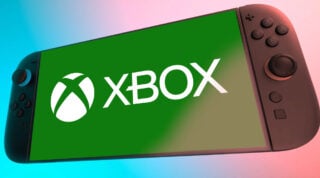Microsoft has said it will appeal the CMA decision
— Piers Harding-Rolls (@PiersHR) April 26, 2023
The Competition Appeal Tribunal site says straightforward cases are aimed to be dealt with within 9 months - if MS wins it gets returned to the CMA
Chances of this closing this year are now slim. That means we get the FTC case
The UK regulator has blocked Microsoft’s acquisition of Activision Blizzard
The regulator has found the merger would lessen competition in cloud gaming; Microsoft says it will appeal decision

Microsoft’s proposed acquisition of Activision Blizzard has been blocked by the UK’s Competition and Markets Authority (CMA).
After months of investigation, the regulator published its final report on the $69 billion deal on Wednesday and said it had prevented it over concerns it would “alter the future of the fast-growing cloud gaming market, leading to reduced innovation and less choice for UK gamers over the years to come.”
The decision is the most significant yet in Microsoft‘s battle to get the acquisition over the line. The UK regulator is seen as one of the most influential in deciding the deal’s fate, alongside the EU and the US.
In the US, the Federal Trade Commission is suing Microsoft in a bid to block the deal over competition concerns. The EU is still investigating.
Microsoft has confirmed it will appeal the CMA’s decision.
The UK regulator wrote: “The CMA has prevented Microsoft’s proposed purchase of Activision over concerns the deal would alter the future of the fast-growing cloud gaming market, leading to reduced innovation and less choice for UK gamers over the years to come.
“Microsoft has a strong position in cloud gaming services and the evidence available to the CMA showed that Microsoft would find it commercially beneficial to make Activision’s games exclusive to its own cloud gaming service.
“Microsoft already accounts for an estimated 60-70% of global cloud gaming services and has other important strengths in cloud gaming from owning Xbox, the leading PC operating system (Windows) and a global cloud computing infrastructure (Azure and Xbox Cloud Gaming).
“The deal would reinforce Microsoft’s advantage in the market by giving it control over important gaming content such as Call of Duty, Overwatch, and World of Warcraft. The evidence available to the CMA indicates that, absent the merger, Activision would start providing games via cloud platforms in the foreseeable future.
“The cloud allows UK gamers to avoid buying expensive gaming consoles and PCs and gives them much more flexibility and choice as to how they play. Allowing Microsoft to take such a strong position in the cloud gaming market just as it begins to grow rapidly would risk undermining the innovation that is crucial to the development of these opportunities.”
In a statement, Microsoft’s president Brad Smith said the company was “disappointed” by the CMA’s decision and claimed it would appeal.
“We remain fully committed to this acquisition and will appeal. The CMA’s decision rejects a pragmatic path to address competition concerns and discourages technology innovation and investment in the United Kingdom.
“We have already signed contracts to make Activision Blizzard’s popular games available on 150 million more devices, and we remain committed to reinforcing these agreements through regulatory remedies. We’re especially disappointed that after lengthy deliberations, this decision appears to reflect a flawed understanding of this market and the way the relevant cloud technology actually works.”

Activision said it would work with Microsoft on an appeal and criticised the CMA for what it called “a disservice to UK citizens”.
“The CMA’s report today is a major setback for the UK’s ambitions to be a tech hub, and we will work with Microsoft to reverse it on appeal,” it said.
“This report is also a disservice to UK citizens, who face increasingly dire economic prospects, and we will need to reassess our growth strategy in the UK. Global innovators large and small will take note that – despite all its rhetoric – the UK is closed for business.”
In a separate statement, Activision Blizzard CEO Bobby Kotick insisted Wednesday’s decision was “far from the final word on this deal”.
Initially, it had appeared that the UK regulator was moving towards approving the deal before today’s announcement.
While the CMA provisionally found in February that the merger could reduce competition and “result in higher prices, fewer choices, or less innovation for UK gamers,” it partially reversed its decision a month later.
After reviewing new evidence, the CMA said it no longer believed the deal would significantly reduce competition in the console gaming space, although it still has concerns about the acquisition’s impact on the cloud gaming market.
In its verdict published on Wednesday, the regulator said its final decision came after Microsoft’s proposed solution “failed to effectively address the concerns in the cloud gaming sector”.
In a bid to address regulatory concerns, earlier this year Microsoft struck game distribution deals with several cloud gaming services including GeForce Now, Boosteroid and Ubitus.
Microsoft submitted a proposal to address some of these concerns which the CMA examined in considerable depth. The proposed remedy set out requirements governing what games must be offered by Microsoft to what platforms and on what conditions over a ten-year period.
Such remedies are described as ‘behavioural’ because they seek to regulate the behaviour of the businesses involved in a merger, requiring them to behave in a way which may be contrary to their commercial incentives. This therefore takes the form of a type of ongoing regulation of the sector, replacing market forces in a growing and dynamic market with mandated regulatory obligations ultimately overseen, and enforced by, the CMA – in this case at a global level.
Microsoft’s proposal contained a number of significant shortcomings connected with the growing and fast-moving nature of cloud gaming services:
- It did not sufficiently cover different cloud gaming service business models, including multigame subscription services.
- It was not sufficiently open to providers who might wish to offer versions of games on PC operating systems other than Windows.
- It would standardise the terms and conditions on which games are available, as opposed to them being determined by the dynamism and creativity of competition in the market, as would be expected in the absence of the merger.
Given the remedy applies only to a defined set of Activision games, which can be streamed only in a defined set of cloud gaming services, provided they are purchased in a defined set of online stores, there are significant risks of disagreement and conflict between Microsoft and cloud gaming service providers, particularly over a ten-year period in a rapidly changing market.
Accepting Microsoft’s remedy would inevitably require some degree of regulatory oversight by the CMA. By contrast, preventing the merger would effectively allow market forces to continue to operate and shape the development of cloud gaming without this regulatory intervention.
Martin Coleman, chair of the independent panel of experts conducting this investigation, said: “Gaming is the UK’s largest entertainment sector. Cloud gaming is growing fast with the potential to change gaming by altering the way games are played, freeing people from the need to rely on expensive consoles and gaming PCs and giving them more choice over how and where they play games. This means that it is vital that we protect competition in this emerging and exciting market.
“Microsoft already enjoys a powerful position and head start over other competitors in cloud gaming and this deal would strengthen that advantage giving it the ability to undermine new and innovative competitors.
“Microsoft engaged constructively with us to try to address these issues and we are grateful for that, but their proposals were not effective to remedy our concerns and would have replaced competition with ineffective regulation in a new and dynamic market.
“Cloud gaming needs a free, competitive market to drive innovation and choice. That is best achieved by allowing the current competitive dynamics in cloud gaming to continue to do their job.”
The European Commission will publish its verdict on the proposed acquisition by May 22. It has been claimed that Microsoft’s willingness to offer game licensing deals to rivals is likely to address EU antitrust concerns.














